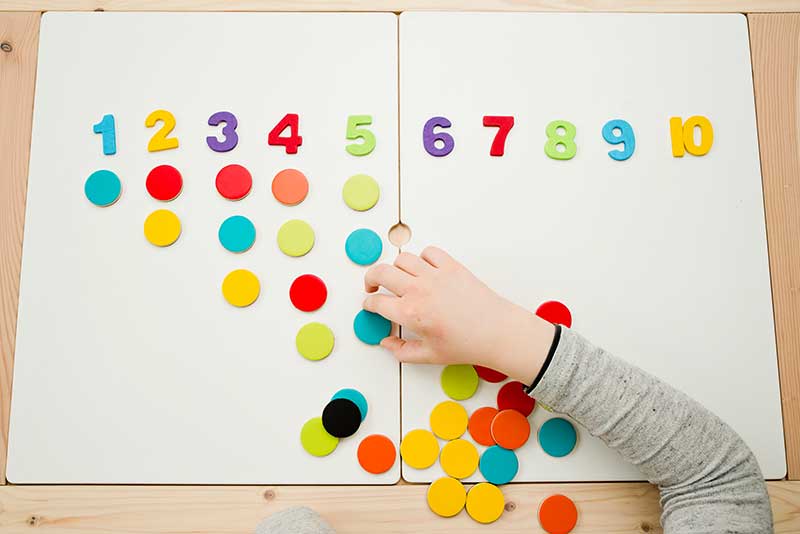Most successful students aren’t natural learners. Although a child’s willingness to study and general attitude toward school and education are greatly influenced by individual personality, most children who are good learners had to work hard to become good learners at some point. More importantly, any student can become an excellent learner if they have the fundamental ability and the right kind of motivation. So, let’s find out how you can encourage learning in children.
Promote direct, sincere communication

Encourage your child or student to voice his opinions about the state of his education. Establish a welcoming environment where he can voice any concerns or disapprovals. Even if you don’t agree with him, be careful to respect his feelings when he expresses an opinion. Children are more inclined to disengage from the learning process when they believe their perspective is irrelevant or when they feel trapped. Good students are aware that their opinions matter and are comforted by the fact that they may speak honestly about their educational experiences without fear of being scrutinized, disparaged, discouraged, or disregarded.
Whenever possible, let your child be in charge

When it comes to education, some children only encounter control, control, and control. When a youngster feels controlled or out of control in their education, they typically disengage from learning. It is necessary to lead children through the learning process, but it is also crucial to allow children to direct their own learning experience. Give children the opportunity to have direct involvement in their learning choices, whether at home or in the classroom. Giving children choices is an excellent approach to accomplish this. Allowing them to choose their topic to write about, for example, when assigning a writing project, will encourage learning in children.
Promote and facilitate various learning methods

Every child has learning preferences and styles that are best suited to their learning style. Some children learn better when dominated, whereas others prefer to study using a combination of learning styles. There is no correct or wrong learning style or combination of learning styles. However, by assisting your child in discovering his preferred learning styles, you can employ tactics that will boost his rate and quality of learning.
The seven basic learning styles are Visual (Spatial), Aural (Auditory-Musical), Verbal (Linguistic), Physical (Kinesthetic) Logical (Mathematical), Social (Interpersonal), and Solitary (Intrapersonal). Kids who are visual learners, for example, learn best by seeing how things operate. Auditory learners, on the other hand, learn best by listening to what is being discussed. Young children need to experiment and apply different learning styles in their day-to-day life.
For More Updates Watch this Video:
Some claim that reading is the key to success in life. We would almost likely claim that reading is essential for academic success. Children who enjoy reading are more likely to enjoy learning. Children who struggle to read struggle to learn. Reading not only helps the child build a larger vocabulary but also teaches the brain how to digest concepts and formalize communication. And the benefits of reading go far beyond improved performance in language, arts and classrooms. Students who read well, perform better in all disciplines, even technical ones such as math and science. Parents must also try to limit how much TV their child watches. This includes times when the child is with them, with a babysitter, or at home alone. Children must hear and speak to adults to develop their language skills.
Make learning more fun by using game-based learning

Game-based learning is not a revolutionary idea. It’s been around for quite some time. For many reasons, game-based learning can be extremely helpful. Using games as an educational tool not only allows for deeper learning and the development of non-cognitive skills but also helps drive kids to want to learn. When a child actively participates in a game, their brains enjoy the pleasure of learning a new system. Engaging games have the additional benefit of pushing them to want to participate in the learning process and learn more. Game-based learning can also be employed to motivate team-based learning, which can be very good for youngsters in the classroom. Students typically attempt harder in games than in classes. Games are more engaging. There is a competitive aspect to playing games for themselves or their teams, as students try to compete or succeed. They may endeavor to perform at a higher level to obtain more points for their team or simply because they wish to play.
Also, learning is a continuous process that does not require kids to be in class, doing homework, or meeting with a tutor. Parents can take advantage of educational activities that are enjoyable for the entire family, such as a nature walk or a virtual tour of a museum. This encourages learning for both the parent and the child and both can spend some quality time with each other.
Make sure your child completes his or her schoolwork

Each night, go through your child’s homework. Ask your child to explain what he or she is learning. Ensure that all assignments are completed. Find a quiet space for your child to study if feasible, and set aside time each evening for assignments.
A tutor can assist a child who appears to be struggling in tailoring their learning to meet their specific needs. Online tutoring courses can improve a child’s academic performance and direct him toward a deeper understanding of fundamental concepts in topics like arithmetic, reading, science, or history. An online tutor may provide them with the one-on-one experience that is not feasible when a teacher has to virtually balanced the demands of many pupils, which is even more important if their classroom is now a video call. Also helping the child arrange his papers, books, and tasks goes a long way toward motivating him to learn. Disorganization is common in young school-age children, but it can also contribute to a sense of disengagement. Overburdened children spend more time and effort being upset and frightened than they do learning. Parents must help the child manage his school supplies and assignments by being gentle to their needs. He will feel more in control, less overwhelmed, and more inspired to learn as a result of this.
Concentrate on learning rather than performance

Rather than asking your child how they fared in an exam or if they got the right answer, have them teach you what they are learning. Concentrating on the learning experience will demonstrate to your child that actual learning is more important than test grades and that you value them more than their performance. It is critical to be open to questions and discussions about learning themes, as well as to allow your child to express their thoughts. The open channel of communication allows you to remain aware of your child’s needs by being aware of their sentiments.
Also, it’s crucial to acknowledge and applaud your child’s accomplishments. This is crucial, especially for primary school students, who need continual encouragement to stay motivated to learn and to perform better.
A special reward is earned for completing difficult work; for example, getting good marks on a math test would call for a trip to the ice cream shop. Parents must use positive reinforcement to encourage learning in their children.
Focus on your child’s strengths
Kids frequently want a little push or encouragement to go above and beyond what they have previously accomplished. Make them aware of their strengths instead of focusing on their weaknesses, and let them know, if they can excel in one area, they will undoubtedly have the ability to shine the brightest. Also, learning becomes interesting and engaging for kids when it involves their areas and subjects of interest. If you truly want to assist your child in becoming a good student, encourage him to investigate themes and subjects that capture his interest.
Last but not least, encourage your kid to investigate his surroundings, ask questions, and find connections wherever possible. Assist him with identifying, classifying, and critically thinking about what he sees and experiences. Making every day a learning day will assist the child in developing inner motivation to learn in the classroom, at home, or wherever he may be.
For more related blogs visit us at Vedanta Philosophy and Education.

Anjani Kumar Shrivastava, a distinguished yoga expert with decades of experience, brings healing and wisdom through yoga therapy, meditation, and Ayurvedic principles. His remarkable Read more


